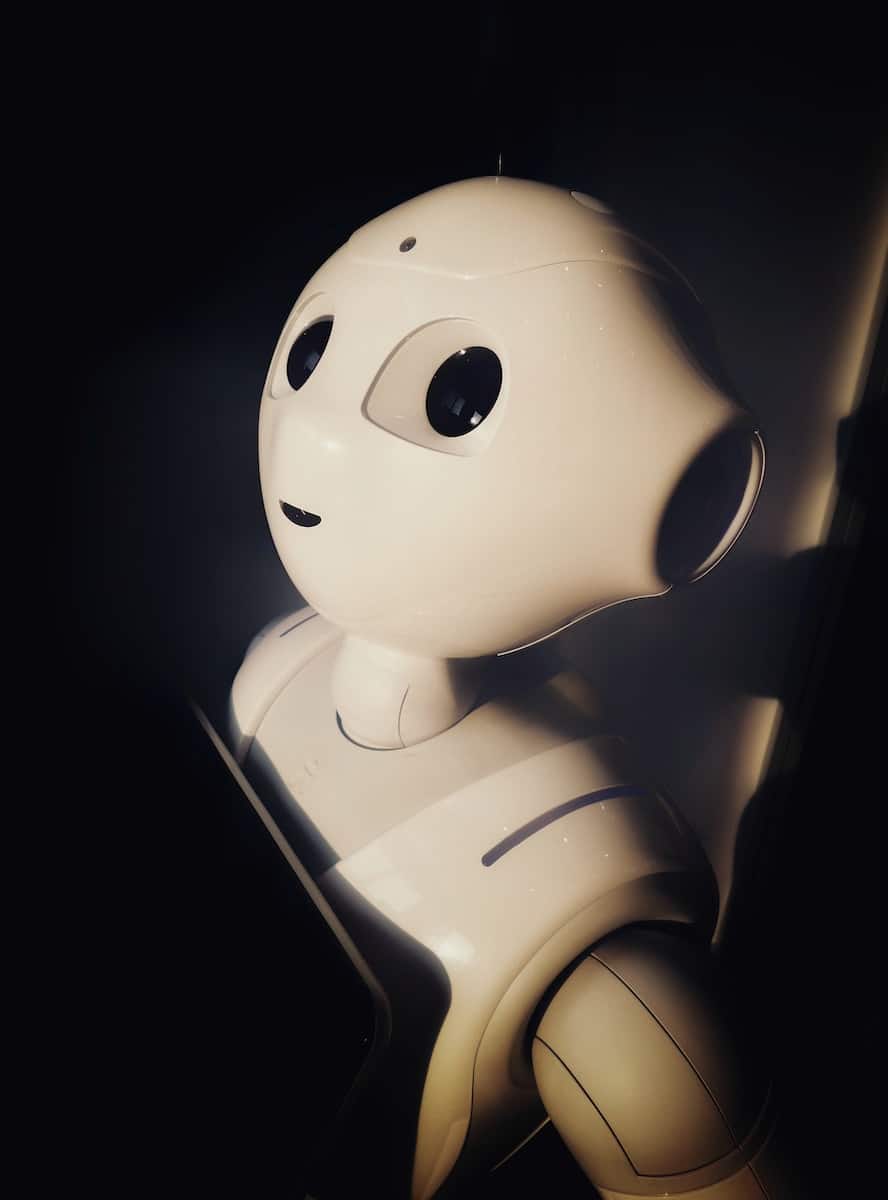Latest advancements in artificial intelligence

 |
November 27, 2023
|
November 27, 2023
In the last decade, the world of technology has undergone revolutionary changes. One of the most significant of these is the extraordinary advancements in the field of artificial intelligence (AI). Technology has been moving at an unprecedented pace, transforming the way businesses operate and individuals live. The cutting edge of these advancements can be both exciting and overwhelming. This article will dive into the most recent advancements in artificial intelligence, discussing the implications and applications of these innovations.
Artificial Intelligence and Quantum Computing
Quantum computing is the first major advancement in the AI realm. Through the implementation of quantum algorithms, artificial intelligence technology has the potential to become exponentially more powerful.
Dans le meme genre : How does an AI Callbot work ?
Quantum computers utilize quantum bits, or qubits, which contrast the traditional binary bits used in regular computing. Instead of only coding information as 1 or 0, qubits can represent both at the same time, thanks to the quantum phenomenon known as superposition. This capability allows quantum computers to process a massive amount of data at unparalleled speeds.
The integration of AI and quantum computing is opening up a world of possibilities. Quantum machine learning, for instance, could lead to the development of incredibly accurate prediction models, a powerful tool for many industries.
A voir aussi : How are load stopping devices inspected ?
AI in Healthcare
Another area that has seen significant advancements courtesy of AI is healthcare. Artificial intelligence is transforming the way medical care is delivered, improving patient outcomes, and streamlining processes within the healthcare system.
AI tools are now able to accurately analyze medical imaging, detecting diseases in early stages that would otherwise go unnoticed by the human eye. Machine learning algorithms can sift through vast amounts of healthcare data to predict patient health outcomes, assist in diagnosis, and personalize treatment plans.
AI-powered robots are also assisting in surgeries, able to make precise incisions that reduce the risk of complications. Moreover, AI chatbots are being used to provide mental health support, reducing the strain on human therapists.
AI and Cybersecurity
As our world becomes more digital, the importance of cybersecurity intensifies. AI is revolutionizing the field of cybersecurity, helping to protect sensitive information from cyber-attacks and data breaches.
AI algorithms can analyze patterns in data and detect anomalies which could signal a potential cyber threat. These systems can identify and neutralize threats in real-time, significantly reducing the risk of data breaches. AI’s capability to constantly learn from data means that these systems can adapt and evolve to counter new cyber threats.
In addition to offensive cybersecurity measures, artificial intelligence can also be used in a defensive capacity. AI can simulate cyber-attacks on a company’s network to identify potential vulnerabilities, allowing the company to strengthen its defenses before a real attack occurs.
AI in Space Exploration
The infinite expanse of space is another frontier being explored by AI technologies. With the huge data volumes that space exploration generates, artificial intelligence is a critical tool in sifting through this data and extracting valuable insights.
NASA, for example, uses AI to analyze data from telescopes to detect patterns that might indicate the presence of exoplanets. Similarly, machine learning algorithms are used to analyze images and data sent back by rovers on Mars, helping to identify potential signs of past or present life on the Red planet.
Artificial intelligence is also used in the operation of spacecraft. Autonomous navigation systems use AI to adapt to unexpected situations during space missions, such as avoiding unexpected obstacles or optimizing fuel consumption during flight.
AI and Environment
The last key area to tackle is the environment. Artificial intelligence offers innovative approaches to tackling environmental challenges and can play a vital role in efforts towards sustainability.
AI can be used for environmental monitoring, analyzing satellite data to track deforestation, monitor wildlife populations, or detect illegal fishing activity. Machine learning algorithms can predict the impact of climate change, helping policymakers make informed decisions about climate policy.
AI can also contribute to energy efficiency. For example, Google uses AI to optimize the cooling systems in its data centres, reducing energy consumption by 40%. Similarly, smart grids use AI to optimize the distribution of electricity, reducing waste and improving energy efficiency.
In conclusion, the advancements in artificial intelligence are reshaping the world in unimaginable ways. From quantum computing and healthcare to cybersecurity, space exploration, and environmental sustainability, AI is at the forefront of technological innovation. However, with great power comes great responsibility. As AI continues to evolve, it is crucial that we consider the ethical implications and strive to ensure that these technologies are used responsibly for the benefit of all.
AI in Education
An equally impressive sector that has witnessed a significant transformation due to AI is education. The educational landscape, which traditionally relied on human-only interactions, is being redefined as it merges with artificial intelligence. The most apparent application of AI in education is the use of customised learning and tutoring systems.
These AI-powered platforms can provide personalized educational content, adapt to the learning pace of each student, and offer help in areas where the student may be struggling. This enhances the learning experience, making it more interactive and efficient. Furthermore, AI can provide educators with detailed insights on a student’s performance, allowing them to tailor teaching methods and strategies based on the unique needs of each student.
Another noteworthy application is the use of AI in grading and assessments. AI algorithms can grade multiple-choice tests, and more sophisticated versions can even grade written responses, offering a significant time-saving benefit for educators.
AI is also expanding the reach of education. Virtual AI-powered tutors can provide education to anyone with an internet connection, regardless of their geographical location, bringing education to remote areas where access to qualified human teachers may be limited.
AI in Agriculture
The agriculture sector is yet another area where AI is making significant strides. As the global population continues to rise, the demand for efficient and sustainable farming practices is more crucial than ever. AI is playing a pivotal role in meeting these demands.
Farmers are now able to use drones equipped with AI technology to monitor their crops and livestock. These drones can collect data on soil conditions, crop health, and detect signs of disease or pests. Machine learning algorithms can then analyze this data and provide actionable insights to farmers, enhancing productivity and reducing the risk of crop or livestock loss.
Artificial intelligence is also being used to optimize yield through precision farming. By analyzing data on weather patterns, soil conditions, and crop characteristics, AI can provide farmers with guidance on when to plant, fertilize, and harvest their crops.
AI-powered robotics is another exciting development in this sector. These robots can perform tasks like harvesting and weeding, reducing the need for manual labor and enabling farmers to focus more on strategic and managerial tasks.
Conclusion
Artificial Intelligence has indeed penetrated nearly every sector and industry, driving a fundamental shift in how we operate in our world today. It is revolutionizing areas like quantum computing, healthcare, cybersecurity, space exploration, education, agriculture, and environmental sustainability. However, like any powerful tool, AI comes with its own set of challenges that we must address.
As we continue to harness the power of AI, we must also remember to safeguard its ethical use, ensuring it is used responsibly and does not lead to unintended consequences. This requires a proactive approach, anticipating potential issues, and implementing robust governance frameworks and ethical guidelines.
The tremendous potential of AI is undeniable. It is up to us to steer its development and application in a way that maximizes its benefits, minimizes its risks, and ensures its use is in the best interest of all. As we move towards a future heavily interwoven with AI, it’s an exciting time to be alive, and we can all look forward to the remarkable innovations that lie ahead.
